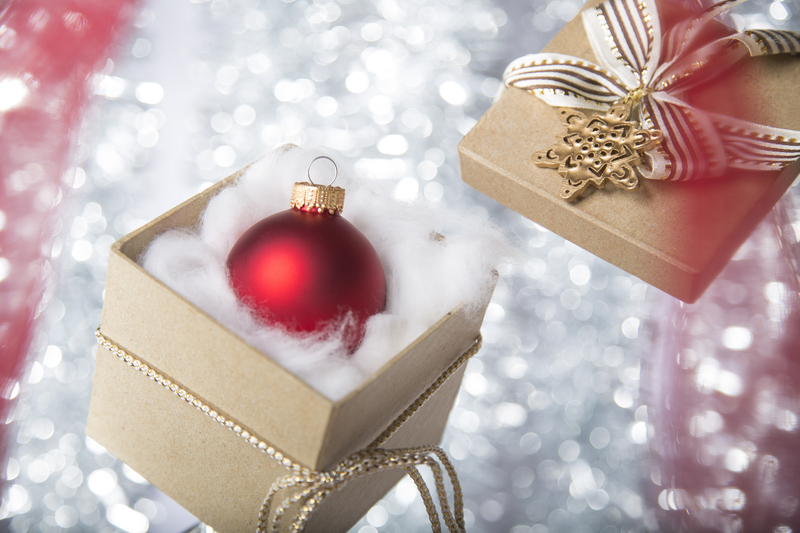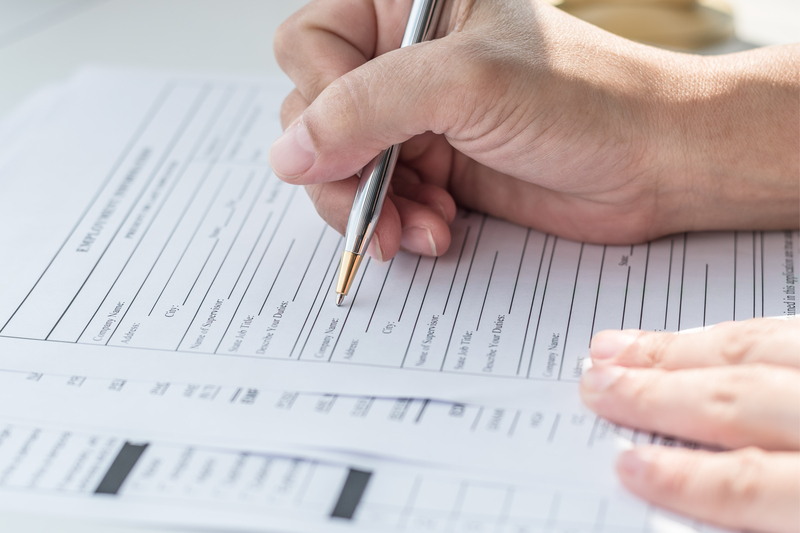Achieve Recycling Excellence at Home with Essential Tips
In today's rapidly evolving world, recycling excellence has become more crucial than ever. Achieving recycling excellence at home goes beyond just separating plastics from paper; it's about adopting mindful habits, understanding the recycling process, and actively contributing to a cleaner, greener planet. Whether you're new to recycling or looking to nurture an eco-friendly household, these essential tips will help you transform your home into a shining example of sustainable living.

Why Recycling Excellence Matters
Recycling at home is not just a responsibility--it's a pathway to environmental stewardship. The benefits of recycling excellence include:
- Reducing landfill waste: Recycling helps keep valuable materials out of overflowing landfills.
- Conserving natural resources: By re-using materials, we save energy, water, and raw materials.
- Protecting wildlife: Proper recycling prevents pollution and harm to animals and ecosystems.
- Cutting carbon emissions: Recycling processes often require less energy than manufacturing from scratch.
Achieving home recycling excellence means you are making a significant contribution to a sustainable future.
Understanding Modern Household Recycling
The landscape of household recycling has evolved in recent years. Municipalities may have different collection guidelines, and contamination rates remain a challenge globally. To achieve recycling excellence at home, it is crucial to stay informed and proactive.
Know Your Local Recycling Rules
Often, recycling woes begin when items are incorrectly sorted. Every city or region has its own rules. Check with your local waste authority to understand:
- Which materials are accepted? Not every area accepts glass, certain plastics, or electronics curbside.
- How should recyclables be prepared? For instance, must you rinse containers, remove labels, or flatten boxes?
- How to dispose of hazardous or unique items: Old batteries, electronics, and light bulbs typically require special treatment.
Essential Tips to Achieve Recycling Excellence at Home
1. Set Up an Effective Recycling Station
A dedicated home recycling system encourages family members to make eco-friendly choices. Here's how you can create one:
- Choose visible, accessible location: Place bins in the kitchen or near your main trash area to make recycling a habit.
- Label clearly: Use bold, easy-to-recognize labels (e.g., Plastics, Paper, Glass, Cans).
- Color-code bins: This simple trick helps children, guests, and all household members recycle properly.
- Post guidelines: Print out your municipality's "Accepted Materials" guide for quick reference near the bins.
2. Know What Not To Recycle
Not everything belongs in the blue bin! Common items that cannot be recycled curbside include:
- Plastic bags and wraps (they jam sorting machines--reuse or return them to store drop-off points)
- Food-soiled containers (dirty pizza boxes, greasy takeout containers, paper towels)
- Ceramics and Pyrex (different melting points than recyclable glass)
- Electronics and batteries (find local "e-waste" collection events instead)
- Styrofoam (most communities do not accept it curbside)
When in doubt, check before you chuck to maintain your recycling excellence at home.
3. Rinse and Prepare Recyclables
One of the most critical recycling best practices at home is making sure items are clean and dry. Contaminated items can ruin entire batches of recyclables. Follow these steps:
- Quickly rinse containers: Leftover food and sticky substances attract pests and cause contamination.
- Dry items before placing them in bins: Wet cardboard or paper is often unrecyclable.
- Remove caps, lids, and straws: Different materials need separate processing.
- Flatten boxes: Save space in your bin and during transit to recycling facilities.
4. Reduce, Reuse, THEN Recycle
Striving for recycling excellence is not just about what goes in your bin--it's about minimizing waste in the first place. Remember the hierarchy:
- Reduce: Buy only what you need. Choose products with minimal or recyclable packaging.
- Reuse: Find secondary uses for jars, boxes, and bags before sending them to the recycling center.
- Recycle: As a last resort, recycle items appropriately.
5. Learn About Advanced Recycling Options
For true recycling excellence at home, go beyond the basics:
- Composting: Turn kitchen scraps, coffee grounds, and yard waste into nutrient-rich soil.
- Textile recycling: Old clothes, linens, and shoes can often be recycled or donated for reuse.
- Specialty recycling programs: Some brands and local organizations collect items like pens, beauty packaging, or even toothbrushes for recycling.
- Home recycling certification: Some communities offer recognition for exemplary recycling practices at home.
Top Household Recycling Tips for Excellence
Make it a Family Habit
Recycling works best when everyone pitches in. Make home recycling a shared goal:
- Assign recycling chores to kids and adults alike
- Create fun rewards for successful sorting and reducing waste
- Set up recycling challenges (e.g., who can reduce waste the most this month?)
Stay Informed & Adaptable
Recycling guidelines and technologies are always changing. To maintain recycling excellence:
- Subscribe to your local recycling authority's newsletter
- Attend community recycling events or workshops
- Regularly update your knowledge and system as guidelines evolve
Educate and Motivate Others
Spread the message of sustainability:
- Share your success stories and helpful info with neighbors and on social media
- Encourage your workplace, children's school, or local clubs to establish recycling programs
Use Recycling Apps and Tools
Take the guesswork out of your recycling routine with digital tools:
- Try apps that identify recyclability of products via barcode
- Set reminders for recycling collection days
- Keep digital copies of your municipality's recycling lists handy on your phone
Common Recycling Mistakes and How to Avoid Them
Even well-intentioned recyclers can slip up. Here are frequent mistakes and how to sidestep them for top recycling performance at home:
- Wish-cycling: Putting non-recyclables in the bin hoping they'll be recycled--stick to known items!
- Neglecting to rinse or dry: Dirty, wet items spoil whole batches.
- Bagging recyclables: Never put recyclables in plastic bags; empty them loose into your curbside bin.
- Ignoring hazardous materials: Batteries, electronics, light bulbs--find proper drop-off events or centers.
Recycling Excellence by Material
Plastic
- Recycle rigid plastics like bottles and containers numbered 1 and 2 on the bottom
- Plastic bags and film packaging often require separate collection at stores
- Black plastic trays are rarely recycled--avoid or reuse creatively
Paper and Cardboard
- Only recycle clean, dry paper and cardboard
- Remove plastic windows from envelopes
- Shredded paper may need to be bagged separately--check local guidelines
Glass
- Check if glass is accepted via curbside or drop-off programs in your area
- Avoid including ceramics, mirrors, or window glass
- Rinse jars and bottles before recycling
Metal
- Aluminum cans and tin cans are widely accepted
- Give cans a quick rinse
- Crushed cans save space but may interfere with sorting in some areas--check your program
Creative Ways to Upcycle and Reuse at Home
Achieving recycling excellence goes hand-in-hand with reusing and upcycling. Try these ideas for a more resourceful household:
- Transform glass jars into storage containers or vases
- Create gift boxes from old cereal boxes or packaging
- Use fabric scraps as cleaning cloths
- Repurpose tin cans as planters or pencil holders
- Turn old T-shirts into reusable grocery bags
Composting: The Unsung Hero of Home Recycling
Organic waste is a huge part of household trash. By composting, you can:
- Reduce landfill waste by up to 30%
- Enrich your garden with nutrient-rich humus
- Lower methane emissions from landfills
Consider a simple backyard compost pile or kitchen countertop compost bin for food scraps, coffee grounds, eggshells, and yard waste.

The Future of Recycling Excellence at Home
New technology and smarter systems are making home recycling more efficient and accessible every year:
- Smart bins with built-in cameras to prevent contamination
- AI-powered sorting at recycling facilities
- Product labeling designed for easier recycling
- Circular economy models, where products are designed with recycling in mind
Staying engaged and adaptable means your home will always set the standard for recycling excellence.
Conclusion: Your Path to Recycling Brilliance Starts at Home
Achieving recycling excellence at home is about making intentional choices, educating yourself and your loved ones, and committing to continuous improvement. By establishing organized recycling systems, understanding local rules, minimizing waste, and staying curious about new advances, you can make a positive impact every day.
Remember, every can rinsed, every box flattened, and every bit of knowledge shared brings us closer to a cleaner world. Start small, stay consistent--the journey to recycling brilliance begins with you!
Quick Checklist for Recycling Excellence
- Set up and label your home sorting system
- Rinse and dry all recyclables
- Keep up with local guidelines
- Encourage family participation
- Reuse and upcycle whenever possible
- Compost food scraps and yard waste
- Share your success and help others achieve excellence
Start today--achieve recycling excellence at home with these essential tips, and inspire a brighter, greener future for all!